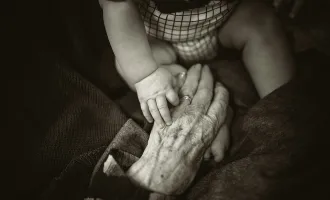
The Agonizing Reality of Obstetric Fistula
Padma Thapa, a 65-year-old woman living in Nepal, was given a second chance at life in 2018 after receiving surgery for her obstetric fistula, a condition caused by prolonged obstructed labor that causes incontinence, the involuntary leakage of stool, urine, and blood. Padma developed her condition after experiencing prolonged obstructed labor due to giving birth to her stillborn child at home in the 1970s.
Seema, another young woman who developed a fistula in Pakistan, was equally as unaware of her condition and the potential solutions. She lived with a fistula for over four years, using plastic bags to gather stool and urine due to the lack of sanitary pads in rural Pakistan. Both women were alienated from their communities due to the social stigma and physical effects of a condition that is entirely preventable.
Padma and Seema's stories echo the impact of the debilitating nature of obstetric fistula on women in low-resource settings, where access to proper maternal healthcare remains a critical challenge.
Between 50,000 to 100,000 women develop obstetric fistula globally each year. Currently, at least two million women in Africa and Asia live with obstetric fistula. This insidious condition, barely spoken of, inflicts a lifetime of physical pain, agony, and suffering. The fistula, in plain terms, is a hole that forms between the birth canal and bladder and/or rectum due to prolonged pressure caused by obstructed labor.
This causes uncontrollable leakage of stool and urine which often warrants social and physical isolation between women and their communities. This condition, left untreated, will shatter not just one’s body, but also their spirit.
The tragedy is not only in the nature of the fistula condition but in its utter preventability. Obstetric fistula is not a predetermined fate, or at least it should not be, in regions where health systems have adequate infrastructure.
Rather, it is a direct confounder in the pursuit of reproductive justice due its disproportionate prevalence in regions with inadequate access to proper health professionals. This burden primarily impacts women in low-to-middle income countries where the training, integration, and education of obstetric surgeons and assistants is limited, conditions that allow the injustice of fistula to thrive.
The solution to obstetric care lies in the efforts of collective commitment from the communities, individuals, and healthcare facilities that are routinely impacted by the presence of fistula. Intervention efforts to remedy obstetric fistulas require cultural humility, defined as honoring an individual’s wishes, perspective, and cultural ties when crafting interventions and solutions.
Given the devastating impact of fistulas on every facet of life, it is crucial to apply structural competency, defined by an awareness of the visible and invisible cultural, social, and medical factors that contribute to reproductive justice, at the forefront of fistula solution efforts.
With the work of organizations like The Fistula Foundation, faith and hope remain in sight. Since 2009, the non-profit organization has made great strides in over 34 countries, being the forerunner for fistula repair and social remedy in the lives of more than 85,000 affected women.
Through the distribution of medical services like surgical repair, and social services such as focus groups and job training, the foundation focuses on all components of reintegration and healing. Their multi-faceted approach maintains cultural humility and addresses concerns surrounding structural competency through their community-centered work.
Through the careful calculation and analysis of potential cost, The Fistula Foundation estimates that the life and soul-saving fistula surgical repair costs a total of $616 or the equivalent of what the average U.S. citizen spends in three and a half days.
I urge you to consider giving the gift of life and freedom to women affected by obstetric fistula by supporting initiatives like The Fistula Foundation. Your contribution can restore the life of a woman, granting not only medical treatment but a chance at reintegration, dignity, and hope for a future.
While some individuals may hesitate to help address obstetric fistula due to a lack of awareness or understanding of its impact, it is critical to understand the urgency and necessity of The Fistula Foundation’s work. This debilitating condition transcends borders in several of the world’s most affected communities in sub-Saharan Africa and Eastern Asia.
The solution requires collaboration as a global community which can be done through supporting organizations like The Fistula Foundation, remaining educated on the topic, and spreading awareness on those providing solutions to this critical condition.
The call for collective action emerges as a demand, not as a suggestion. Initiatives like The Fistula Foundation exemplify this collaborative approach, offering hope and healing to thousands of affected women through their social and medical resources. The Fistula Foundation’s success thus far urges us to rally as a global community to support women worldwide and the pursuit to provide them with a second chance at life.



